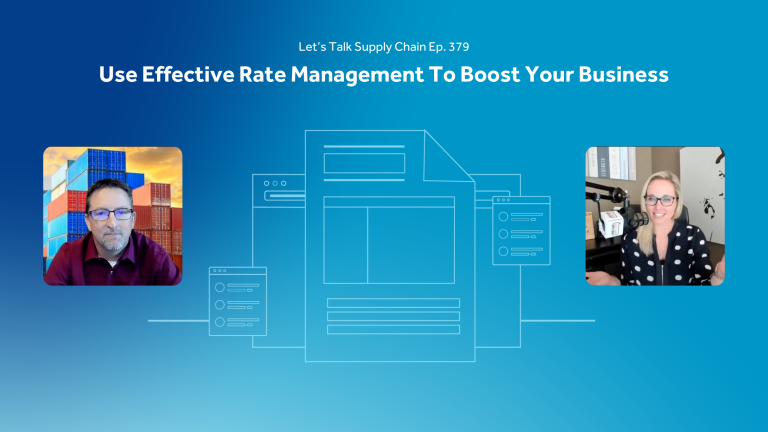There are many factors to take into consideration when starting up a new trucking business. Here are 10 crucial steps to take when entering the sector.
Establishing your own trucking business can be a highly lucrative move. Truck transportation is always in high demand, but to be successful, you’ll need to gather intimate knowledge of how the industry works first.
You’ll need to build skill in creating a trucking business, and secure access to capital, along with deciding whether you wish to be an owner-operator, or simply an owner of your company. Then, you need to gain the skills necessary to hire qualified drivers in a sector where they’re in increasingly short supply.
If you’re up for the challenge, then we suggest you follow these 10 steps to get your business moving:
1. Gauge Your Strengths and Weaknesses
Your first step to opening a new business should be to embark on a process of realistic self-assessment. If you are starting your own trucking company, you should ideally already have experience in the business as a prior employee or driver. Naturally, you can build a successful business even if you’re new to the sector, but this may be more of a hindrance than an advantage.
Identify your strengths and weaknesses in relation to your trucking company so you know where you might fall short. If you don’t have first-hand industry experience, it might be beneficial to hire personnel familiar with the sides of the business that you’re not.
Ask yourself why you’re aiming to enter the trucking industry? Do you have years of experience that could translate into a solid business model? Do you smell an opportunity within this growing field? The more you assess your motives and knowledge, the better prepared you’ll be to model and operate your business sustainably.
2. Owner-Operator or Hirer
Owner-operator trucking businesses are unique, as they can be established from scratch within short periods of time. If you’re an independent driver aiming to start your own business, you likely already have many of the skills you need for success.
This path is not suited to everyone – you might prefer handling the office side of things instead. You need to decide if you’ll be driving or hiring drivers before you establish your business, as this choice will significantly impact how your company runs. You will also need to gain working capital, fleet management knowledge, and a good understanding of legal liability in order to make your decision.
3. Draw Up Your Business Plan
Regardless of the type of trucking operation you wish to set up, you can’t fake it ‘til you make it in this business. You need to draw up a comprehensive business plan that shows exactly where your business is headed, and how it will arrive there.
Your business plan should show the equipment, financing, employees, and skills needed to reach your profit and growth goals, both in the short and long term. If your plan is well written, it can assist you in applying for commercial truck financing to get your company off the ground.
4. Obtain the Right Permits and Licenses
The trucking sector is understandably well-regulated. You’ll need to acquire numerous licenses, permits, and documents before you can begin legal operations. Some essential permits that you may need include a CDL commercial driver’s license, a Motor Carrier number, and a USDOT number if you are based in the United States.
Additionally, you may need to install electronic logging devices in your trucks before they hit the road. Check with your local authorities to determine exactly which permits and licenses you need to keep your business operating smoothly, and on the right side of the law.
5. Secure Comprehensive Insurance
Truck insurance should be an absolute priority for you and your business. The FMCSA requires specific types of insurance, such as cargo and liability insurance, to issue operating permits. Insurance acts as a crucial protective measure for your company.
Trucks run on demanding, high-mileage schedules, and face inevitable maintenance demands as a result. Having just one truck off the road as a start-up could cripple your company—but having the right insurance can prevent this.
Your regular premiums ensure your carrier carries the risk of possible accidents, breakdowns, damages, and other major issues. You should also note that few financial organizations will offer you financing without you having insurance in place first!
6. Secure Sufficient Financing
Almost every trucking company needs financing to get going, especially since the sector relies so heavily on equipment. Your company will need enough money for vehicles, office supplies, payroll, and insurance, among other costs like legal fees, maintenance and employee benefits.
When seeking financing, try to partner with a company that understands your needs as a start-up. Many smaller banks or lenders may be more willing to consider your loan application without an extensive operational history, and some finance companies specialize in funding small businesses just like yours.
7. Setup Your Fleet
Your trucking business won’t go anywhere without trucks. Once you’ve secured funding, you’ll need to purchase a fleet. Be discerning about the vehicles you purchase.
Is your business a long-haul operation or will your routes be short haul only? Do your chosen trucks suit your business model? What sort of cargo will be handled? You’ll need to scan the truck market to build a fleet that perfectly matches the routes and cargo you’ll be carrying to ensure success.
8. Start Off with a Web-Based TMS
Once your business is almost up and running, you need to stay organized and on top of your cash flow at all times. One of the most efficient and cost-effective ways to do so is to opt for a web-based transportation management software system (TMS) such as Tailwind.
Tailwind’s TMS doesn’t require significant outlays of time and money to get started. Plus, it can streamline your operations significantly without hindering your alternate business processes or taking up more of your time.
9. Hire Skilled Employees
Nobody can operate a trucking business solo, even if they have decades of industry experience. If you wish to maintain and adequately grow your business, you’ll need employees to manage the books, answer phones, book jobs, and ensure your business records are perfectly organized.
The people you hire can make or break the profitability of your business. Ensure that your chosen employees are skilled, reliable, and well suited to their respective positions.
10. Find Customers
Now that your trucking business is all but established, your first task as an operational company will be to find customers. Get to work marketing your company, networking, and advertising across online and physical channels to ensure you get noticed by the right potential clients.
You can join trucking associations and groups, and establish a website and social media presence to assist you in this pursuit. Once you have a few clients in place, use an effective sales strategy to grow and diversify your customer base over time. This ensures that if a single major customer bows out, your cash flow will not be significantly disrupted or halted altogether.
While every trucking business differs slightly, these 10 tips can be applied across the board, or adapted to suit your operation. By implementing each one, or those that suit your model, you’ll put your trucking business on the road to success.
Guest Author:
Lorie Dodson
Editor-in-Chief, CDLjobs.com
Editor’s note: This blog was originally written for Tailwind Transportation Software, 10 Essential Steps to Starting a Trucking Business.




